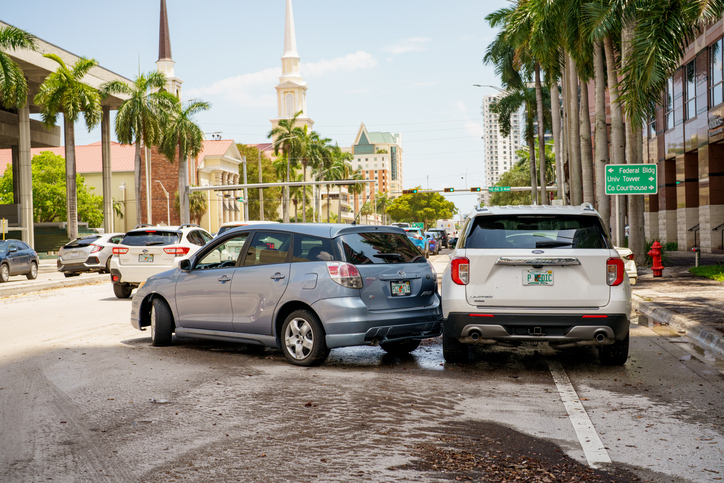Florida’s courts have been dropping bombshells that could make or break your car accident case. From million-dollar verdicts getting tossed to new rules on evidence, these decisions are rewriting the playbook for attorneys and clients alike. Whether you’re a seasoned lawyer or someone navigating a claim, here’s the scoop on recent rulings that demand your attention. Buckle up—let’s dive into the chaos and clarity of Florida’s legal landscape.
1. Progressive v. Gonzalez: Bad-Faith Claims Just Got Trickier
In the blockbuster case of Progressive American Ins. Co. v. Gonzalez, a jaw-dropping $25 million underinsured motorist (UIM) verdict was obliterated on appeal. Why? The court ruled that posting a Civil Remedy Notice (CRN) on the Department of Financial Services website doesn’t cut it—CRNs must be personally served to insurers under Fla. Stat. § 624.155. This isn’t just red tape; it’s a high-stakes procedural trap.
Why it matters: One wrong move on CRN delivery could torch your bad-faith claim, leaving your client high and dry. Double-check your process, or that big win might vanish.
2. GEICO Case: When “Uninsured” vs. “Underinsured” Sparks a Retrial
Picture this: a jury gets the wrong memo, thinking the defendant was “uninsured” instead of “underinsured.” Sounds minor, right? Wrong. In a GEICO-related appellate case, this mix-up was enough to throw out the verdict and order a retrial. The court said this mislabeling skewed the jury’s perspective, tainting the outcome.
Why it matters: Words matter in court. A single slip in jury instructions can unravel years of work. Attorneys, scrutinize your UM/UIM language like your case depends on it—because it does.
3. Wolf v. Williams: Tort Reform’s New Rules Don’t Time-Travel
Florida’s tort reform is shaking things up, but the Fifth DCA in Wolf v. Williams dropped a crucial clarification: the new evidence rule under Section 768.0427, which limits what medical expense evidence you can present, isn’t retroactive. The key? Your case’s filing date, not the accident date, determines if the rule applies.
Why it matters: If your client’s crash predates March 2023 but the lawsuit was filed later, you can still present full medical bills. Timing is everything—strategize your filing to maximize recovery.
4. Tesla’s Battery Battle: Crash vs. Design Showdown
In a high-profile Florida crash case, the 11th Circuit backed Tesla, dismissing claims that its battery-pack design caused a fiery wreck. The court zeroed in on crash dynamics, not the battery itself, raising the bar for product liability claims against automakers.
Why it matters: Winning defect cases now demands rock-solid expert testimony. If you’re taking on an OEM like Tesla, brace for intense scrutiny of your technical evidence. This federal ruling isn’t binding in state courts but signals a tough road ahead for design-flaw arguments.
5. $28 Million Verdict Axed: The Power of Bifurcated Trials
In a gut-punch to plaintiffs, a Florida appellate court threw out a $28 million car accident verdict, calling for a bifurcated trial to separate liability and damages. Why? Mixing the two phases let irrelevant evidence sway the jury, poisoning the verdict.
Why it matters: Bifurcation isn’t just a buzzword—it’s a shield against overturned verdicts. Proactively splitting trials could save your case from appellate annihilation.
Your Playbook: 5 Must-Know Takeaways
Here’s how to turn these rulings into action:
- Nail CRN Delivery: Hand-deliver those Civil Remedy Notices within 60 days. Don’t trust the DFS website to do your job.
- Perfect Jury Instructions: Triple-check UM/UIM language to avoid retrial headaches.
- Time Your Filing: Pre-March 2023 accidents? File strategically to sidestep tort reform’s evidence limits.
- Bulletproof Expert Testimony: Product liability cases need airtight technical evidence—don’t skimp.
- Embrace Bifurcation: Split liability and damages to keep juries focused and verdicts intact.
Choosing the Right Attorney for Your Case
If you’re hiring an attorney for your car accident case, these Florida court rulings show why experience and precision matter. You need a lawyer who stays ahead of the curve—someone who masters tricky procedures like CRN delivery, crafts flawless jury instructions, times filings strategically, secures top-notch experts, and uses trial tactics like bifurcation to protect your payout. Pick an attorney, like Michael E. Fenimore, who’s battle-tested in Florida’s courts and ready to navigate these new legal twists to fight for every dollar you deserve.

